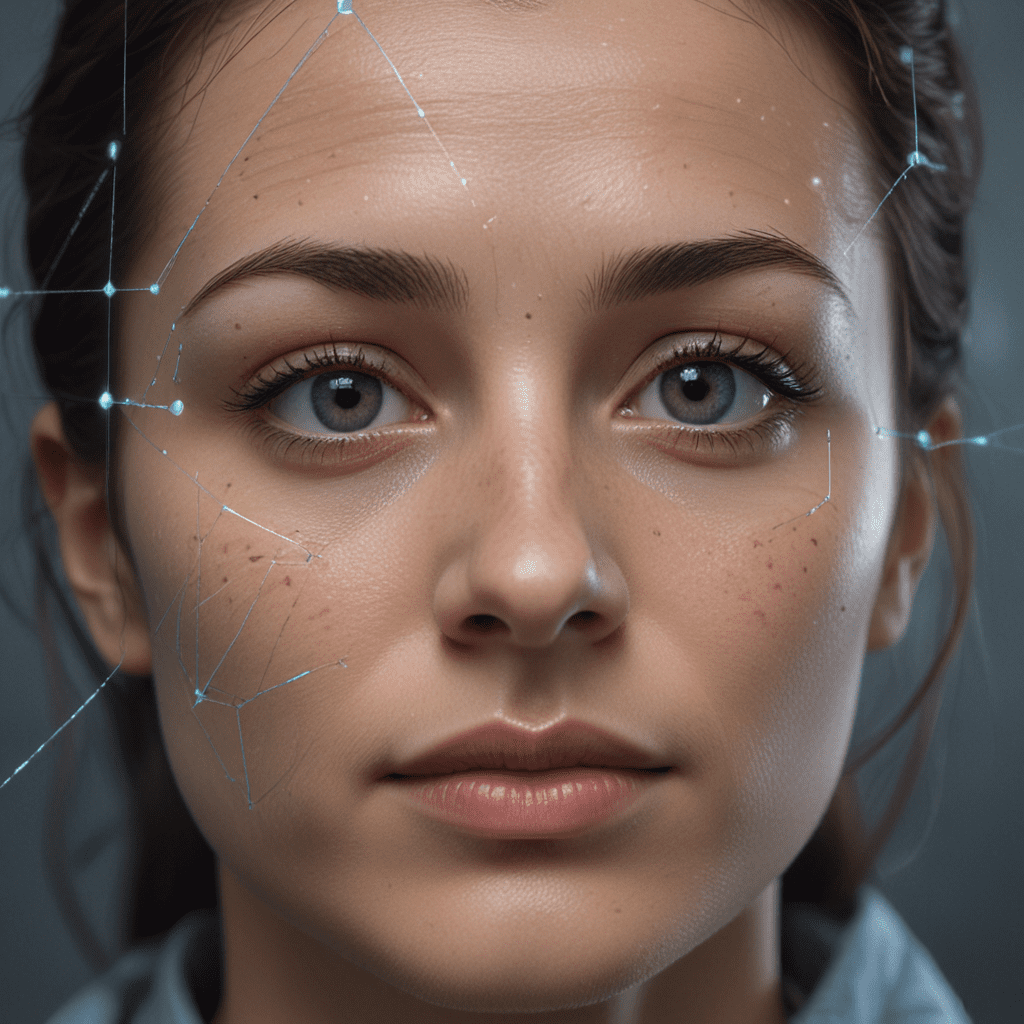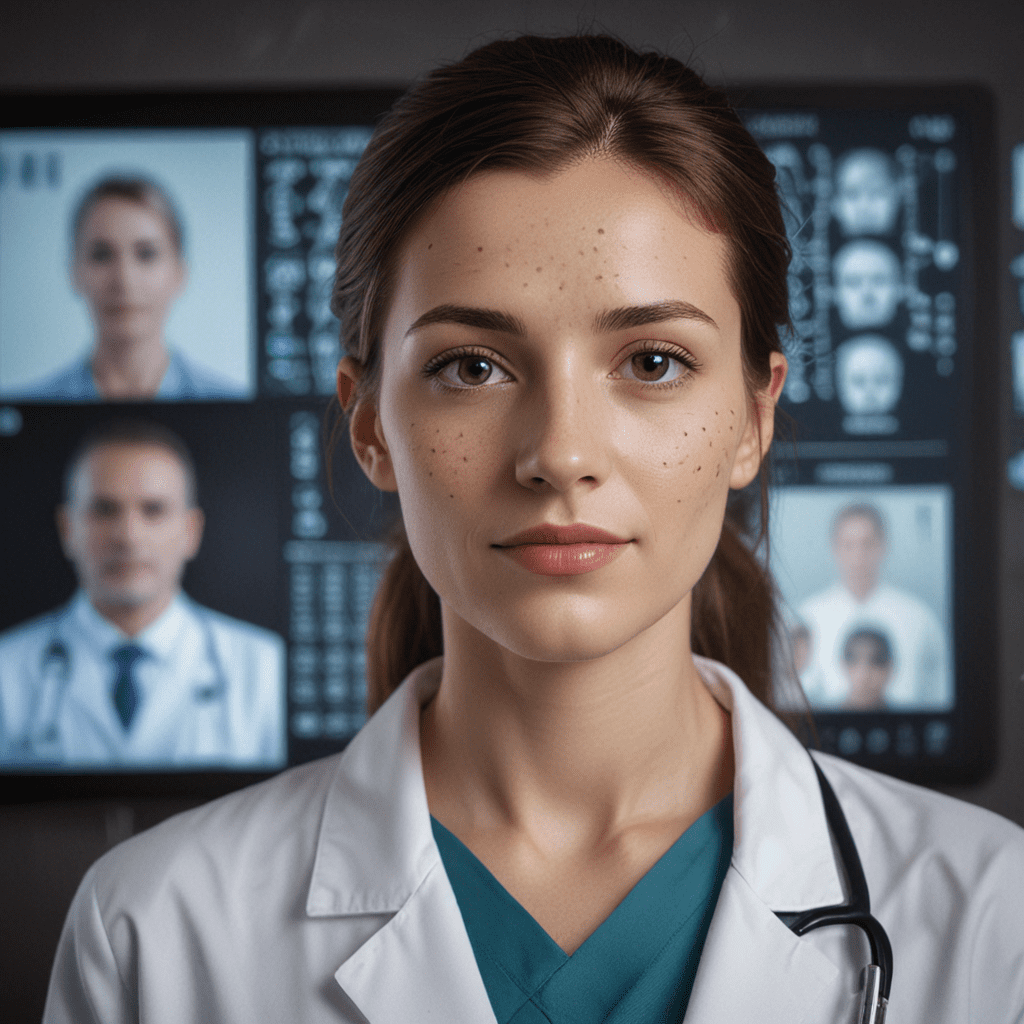1. Introduction
In the rapidly evolving healthcare landscape, technological advancements are transforming patient care and empowering individuals to take an active role in their health. Among these innovations, facial recognition technology has emerged as a promising tool to enhance and personalize healthcare solutions. By leveraging the unique characteristics of each individual's face, healthcare providers can unlock a range of benefits that improve patient outcomes and optimize the delivery of care.
2. Overview of Facial Recognition Technology
Facial recognition technology utilizes advanced algorithms and computer vision techniques to identify and authenticate individuals based on their facial features. This technology has gained significant traction in various industries, including healthcare, due to its high levels of accuracy and efficiency. Facial recognition systems capture and analyze facial images, extracting unique biometric data points that are then used to create a digital representation of the individual's face. This digital representation can be stored and compared to other facial images in a database, enabling real-time identification and verification.
3. Benefits of Facial Recognition for Healthcare
The integration of facial recognition technology into healthcare settings offers a plethora of benefits for patients, providers, and healthcare organizations alike. By leveraging this technology's capabilities, healthcare providers can enhance patient safety, streamline administrative processes, and improve access to care. Facial recognition technology has the potential to revolutionize various aspects of healthcare delivery, leading to more efficient, personalized, and secure patient experiences.
4. Personalized Patient Identification
One of the key benefits of facial recognition technology in healthcare is its ability to facilitate personalized patient identification. Traditional methods of patient identification, such as ID cards or manual verification, can be time-consuming and prone to errors. Facial recognition, on the other hand, provides a fast and accurate way to identify patients, even in crowded or chaotic environments. This enhanced identification process eliminates the risk of misidentification and ensures that patients receive the correct treatment and care.
5. Enhanced Patient Safety
Facial recognition technology also plays a crucial role in enhancing patient safety. By securely identifying patients upon entry to healthcare facilities, facial recognition systems can prevent unauthorized access and reduce the risk of security breaches. Additionally, facial recognition can be used to monitor patients in real-time, enabling healthcare providers to quickly identify and respond to any potential emergencies. This continuous monitoring enhances patient safety and provides peace of mind to both patients and their families.
6. Improved Access to Care
Facial recognition technology has the ability to improve patient access to care. For patients with cognitive or physical impairments, traditional methods of identification can pose significant challenges. Facial recognition can bridge these gaps, providing an alternative and user-friendly way for individuals with disabilities to identify themselves. By simplifying and streamlining the identification process, facial recognition technology empowers patients to take more control of their health and promotes greater independence.
7. Challenges and Ethical Considerations
While facial recognition offers substantial advantages in healthcare, it is crucial to acknowledge the challenges and ethical considerations associated with its implementation. One of the primary concerns revolves around privacy. Facial recognition data is highly personal and sensitive, and its collection and storage require strict safeguards to prevent misuse or abuse. Healthcare providers and policymakers must carefully balance the benefits of facial recognition with the protection of patient data and privacy rights.
8. Privacy Concerns
Addressing privacy concerns is paramount when implementing facial recognition in healthcare settings. To ensure the ethical and responsible use of this technology, it is imperative to establish clear policies regarding the collection, storage, and use of patient data. Patients must be fully informed about how their facial recognition information will be used and have control over how it is shared. Robust encryption and anonymization techniques can further enhance patient privacy by safeguarding data and preventing unauthorized access or identification.
9. Accuracy and Bias
Accuracy and bias are other critical considerations in the implementation of facial recognition within the healthcare domain. Facial recognition algorithms must demonstrate a high level of accuracy and reliability to ensure fair and equitable outcomes for all patients. Bias in facial recognition systems can lead to false identifications and potential disparities in care, particularly for individuals from certain racial and ethnic groups. It is crucial to address these biases through continuous evaluation and improvement of facial recognition algorithms, ensuring fairness and inclusivity for all.
10. Conclusion and Future Directions
In conclusion, facial recognition technology has the potential to transform the delivery of personalized healthcare, offering a range of benefits for patients, providers, and healthcare organizations. By enabling accurate patient identification, enhancing safety, and improving access to care, facial recognition can empower individuals to take an active role in their health. As the technology evolves and ethical considerations are addressed, facial recognition is expected to play an even more significant role in shaping the future of healthcare, leading to more personalized, efficient, and secure experiences.
FAQs on Facial Recognition in Healthcare
1. How Accurate is Facial Recognition Technology?
Facial recognition algorithms have achieved a high degree of accuracy, typically exceeding 95%. However, factors such as lighting conditions and facial expressions can affect accuracy.
2. Are There any Privacy Concerns with Facial Recognition in Healthcare?
Privacy is a paramount concern, and healthcare providers must implement robust data security measures to protect patients' facial recognition information from misuse or abuse.
3. How Does Facial Recognition Improve Access to Care?
For individuals with cognitive or physical impairments, facial recognition provides a convenient and user-friendly way to identify themselves, facilitating access to healthcare services.


